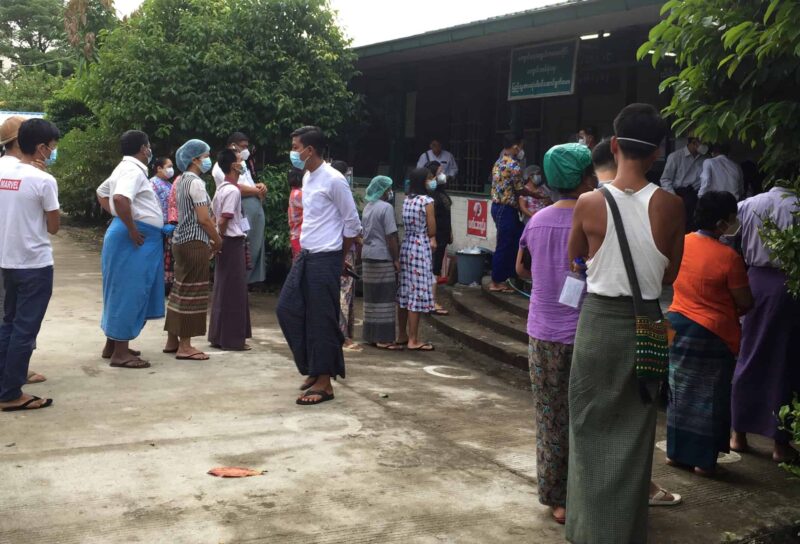The flourishing of digital democratization has opened the young democracy of Myanmar to disinformation and hate speech. Real or Not, launched by Myanmar ICT for Development Organization (MIDO) in 2015, is responding to this issue through verifying user-generated content, debunking mis/disinformation, and raising awareness on media literacy. MIDO is a long-standing partner of Internews.
Real or Not joined more than 90 signatories of the esteemed International Fact-Checking Network (IFCN), the first initiative in Myanmar to do so. The initiative went through a rigorous assessment process, conducted by Internews’ own senior trainer who had been nominated by a third party CSO and became the first recognized IFCN assessor in Myanmar as well. Except for one sub-criteria, Real or Not was found compliant to all IFCN principles, joining the likes of The AP, AFP, and the Philippines’ Rappler. As a signatory, Real or Not is assessed annually and thus required to maintain a high standard of operations.
“As an assessor of IFCN, I am proud to be a part of this signatory process for MIDO. As the only IFCN assessor for Myanmar, this is a great honor for me. As a country, we can now say that we have an organization that is a IFCN signatory. This is good for the process to fight mis/dis information in Myanmar. We have a reliable group for fact checking.” — Tin Zar Aung, Training Manager at Internews in Myanmar & IFCN Assessor
With former reporters serving as most of its fact-checkers, the Real or Not team uses journalistic techniques to actively verify stories about political, economic, social, and health issues. Furthermore, it utilizes its social media platforms including Facebook, Viber, Instagram, and Twitter to raise awareness and improve media literacy.
When an Infodemic Meets an Election
While Myanmar struggled with COVID-19 and the flood of rumors and myths that spread quickly on social media, it meanwhile held its second democratic national election on November 8, 2020. With 22 million active social media users, 95% of whom are on Facebook, the platform has become the battleground for hate speech and disinformation.
The need for factual information is further highlighted by Internews’ Information Ecosystem Assessment recent finding: first-time young voters have increased the use of internet and social media during the pandemic, mostly on Facebook, which has been cited as the best channel to receive news and information.
Real or Not rose to the challenge, publishing six to seven fact-checked stories per week since March 2020, an increase from three to four per week prior to the COVID-19 pandemic. It also started running a fact-checking Messenger chatbot on Facebook, which allows users to report claims and request verification. It selects news stories to investigate based on their virality, the number of claims submitted, importance, and relevance to Myanmar, while complying with MIDO’s non-partisanship policy to maintain objectivity.
Some of the rumors Real or Not exposed about COVID-19 including those alleging that chloroquine-based medicine cures COVID-19; that the Facebook Myanmar team was spreading COVID-19 to its Burmese employees; and that COVID-19 positive patients were treated poorly.
With regard to the election, Real or Not has been active in debunking inflammatory rumors as well as hate speech, especially against candidates from minority groups. One of the debunked false news was that an opposition party, People Pioneer Party, would complain to UEC for election fraud on Election Day. It also exposed misinformation that an NLD candidate in the Northern Shan State had been assassinated after winning the election. Real or Not posted videos and messages to raise awareness of these circulating rumors and the need for media literacy.
While disinformation cannot be entirely eliminated, fact-checking initiatives like Real or Not strive to mitigate its increasingly devastating impact on people’s lives in countries, such as Myanmar, that only have just begun to build their democratic institutions.
(Banner photo: Voters queue to vote in Myanmar’s second democratic election on November 8, 2020. Credit Tin Zar Aung)
